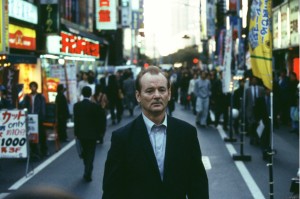 I’m on my second day in Tokyo as part of my “making connections” visit for Perfect Pitch and new musicals in the UK. I’m meeting producers, theatre owners, conservatoire leaders, directors, and interpreter/translators. Yesterday I was met with 6 different translators across 2 meetings…what do you call a collection of translators ?
I’m on my second day in Tokyo as part of my “making connections” visit for Perfect Pitch and new musicals in the UK. I’m meeting producers, theatre owners, conservatoire leaders, directors, and interpreter/translators. Yesterday I was met with 6 different translators across 2 meetings…what do you call a collection of translators ?
I think it has got to be a Babel of interpreters. Think Hitchhikers Guide to the Gallaxy or the Old Testament for the connection.
We were exploring the complexities of doing a good job with translating and creatively interpreting a text – especially in this case a work of Musical Theatre. They had each had experiences, good and bad, of working for a producer to make a work come alive for a Japanese audience from an original English language text.
It seems that producers often underestimate the time needed, and the skill needed, to do a good job. So in the spirit of sharing thoughts, here are some of the things we discussed. Many ring very true to me from my 5 years of working with theatre producers internationally wishing to make new translations of Miss Saigon and Les Miserables. Great care was rightly expected by Cameron Mackintosh and the original creators of the works.
A good translation cannot just be a literal word for word translation of the text. In this sentence you see the problem – there’s no special word for the skill that they bring to the task. The real translator is, in effect, a new writer on the project. It is their words that the audience will take away in their hearts, not the words of the great American, French, Swedish, or British lyricist.
In Japanese the sentence structure is completely different from English. One word in English may take many syllables in Japanese to express. We are told there are 46 words for snow in Icelandic – so which one is best. There are levels of tonal formality and informality – tu and vous in French, many more in other languages. And in Chinese there are tonal and vocal pitch variations where two words can have completely different meanings depending of how they are said. We love our word play and sometimes cynical or sarcastic humour – how does that translate to be a joke in Japanese. And there is no direct japanese word for No.
Massive challenges which cannot be tackled when, as one of my new found contacts revealed, you are given one week to create the translation of a major Broadway blockbuster before rehearsals start.
When I start running the MA in Creative Producing at Mountview in September, and when I continue to offer courses and consultancy for writers and theatre networks, this is an area I really want to focus on. Around the green tea and delicious cake yesterday, everyone had examples of major shows where the language was not as good as the original, or the word structure made it very very difficult to sing and deliver the meaning, balancing to the stresses of the music.
And if you think that’s complicated – how about being commissioned to do the Japanese voices for an animated musical, where the challenge is not only to fit the vocal line – but to make the words fit the already existing mouth patterns of the animated character singing. Rather them that me tackling that one.
So – if you want to be a translator of fine English language plays or musicals for an audience in your own language how do you learn your craft. I was talking with a young language interpreter who wants to adapt musicals and maybe write their own as bookwriter in the future. We talked about some of the exercises that I used with writers on the Month of Sundays writing course. To take a well known nursery rhyme and translate that. To take a great short English language love song and translate that so it sings well, and means a lot.
I even suggested she took one of the songs from one of the great long running musicals playing in Tokyo. Study the original French/American/English lyrics. Compare them to the existing Japanese lyrics. And then write their own version if they feel that it could be improved upon. Finding ways to get more of the original feeling into the new lyric, supporting the singer to be able to give the right emotion through the words, and ensuring the stresses and emphasis work with the sweep of the orchestration, so that the audience can hear the most important words. This must be a private exercise because of copyright, of course, but it will be fascinating to see if this young translator could come up with a better way to express the original writer’s original intentions.
So it was a joy to meet a “babel” of interpreters yesterday. Now I am preparing to do an open session with a “budget” of producers and a “hug” of directors. Two more days here in Tokyo, then off to Kuala Lumpur for the next round of the Perfect Pitch travelling show. Thanks Andy and Wendy for entrusting me with this brief.
